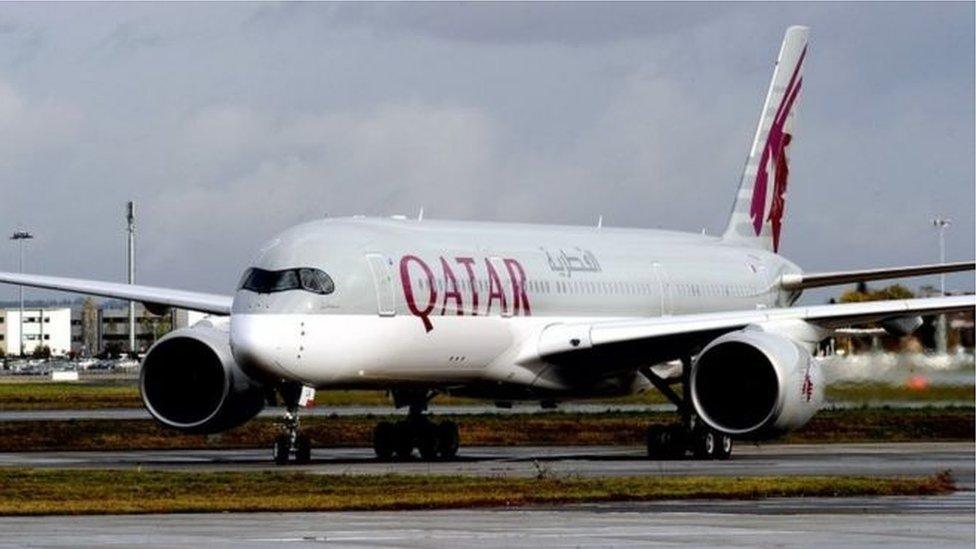County Antrim pilot breaking through a sky-high glass ceiling
- Published
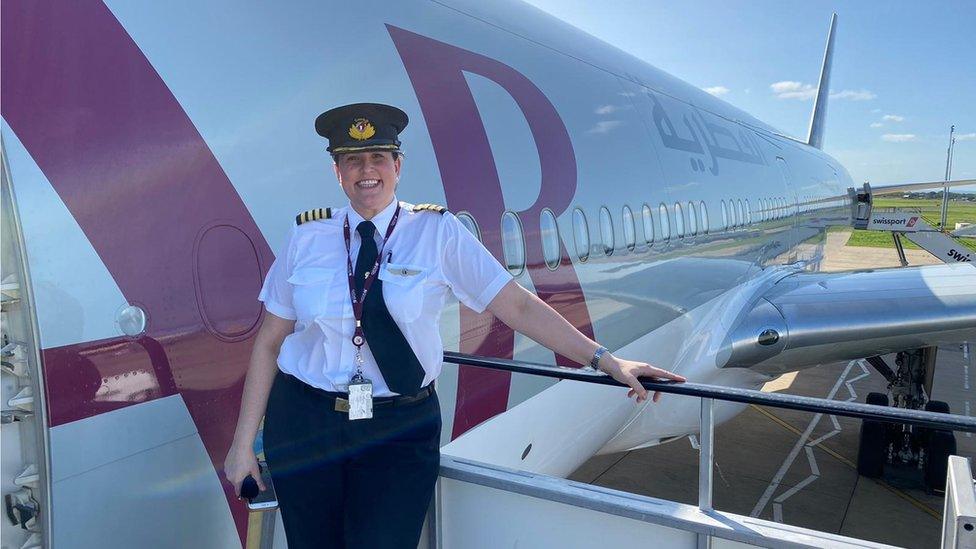
"Don't let people make you believe that it's not possible - it is."
Captain Pamela Forsythe should know - it's a mantra that's jet-setted her dream career.
As a pilot for Qatar Airlines, Captain Forsythe, originally from Corkey, County Antrim, is just one of the relatively few female commercial airline pilots in the world.
Globally, just 5.18% of commercial pilots are women, according to the Air Line Pilots Association International trade union.
Regardless of the paltry numbers, she is at the top of her profession, flying for a world-renowned carrier and even recently making history when she landed a 777-300 Boeing jet at Belfast International Airport.
The plane - which had been chartered by Queen's University (QUB) to carry Chinese students - uses some of the largest engines in the world and it was the first time an aircraft of its type had ever landed in Belfast.
Allow X content?
This article contains content provided by X. We ask for your permission before anything is loaded, as they may be using cookies and other technologies. You may want to read X’s cookie policy, external and privacy policy, external before accepting. To view this content choose ‘accept and continue’.

A second flight carrying another cohort of mostly Chinese students arrived in Belfast on Saturday.
"As far back as I can remember it is what I wanted to do," Captain Forsythe told BBC News NI.
"I don't remember this but my mum tells me that when I was tiny I looked up when there was a plane flying over and I said: "That would be a good job".
Now, her passion for piloting has shifted to encouraging more women to enter the career that she loves, external.
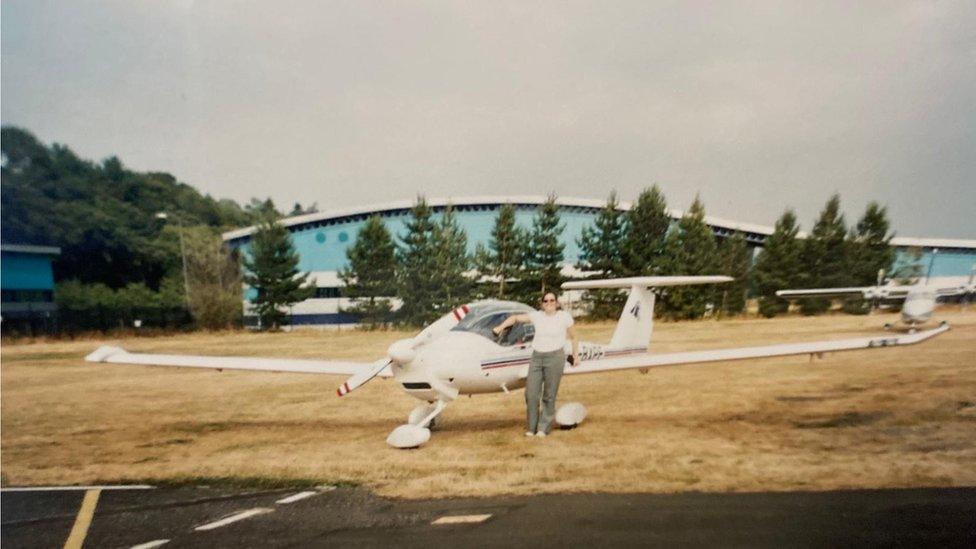
Pamela Forsythe pictured after her first solo flight 20 years ago
"It really is quite a pathetic statistic (the number of women pilots) and it would be nice to raise that number," she said.
She added she finds it "baffling" as to why the number is so low, but that one reason may come from "old-fashioned ideas of male and female jobs".
"Women had a massive part to play in aviation during WW2 but then it became a male-dominated industry in the 60s and 70s," she said.
"So in some ways young women don't have as many role models.
"Then they don't see it as an option or think about it, which is sad as, being in the industry, I have many female friends who are pilots."
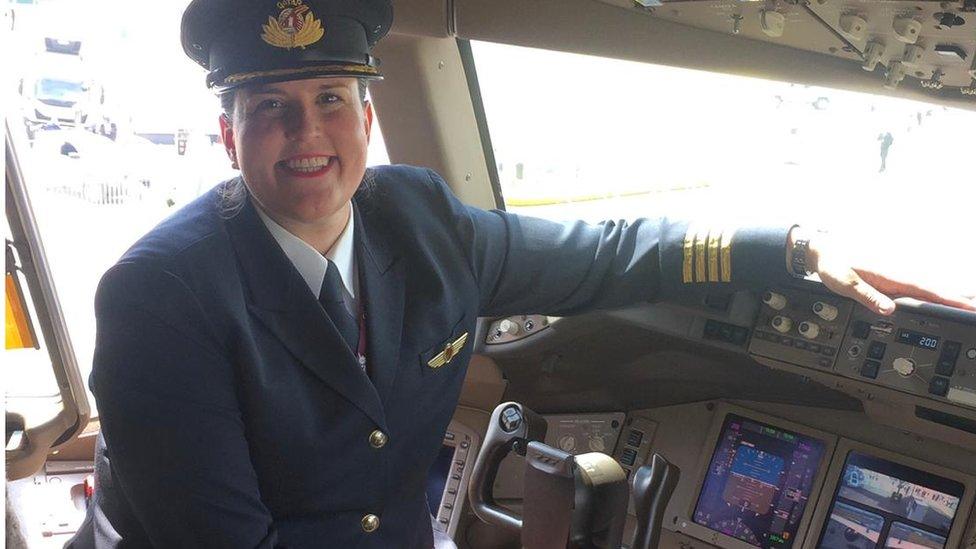
Captain Pamela Forsythe in the cockpit
Another stumbling block for young people trying to get into aviation is finding the right information.
"When you at are school and go to careers evenings, there's a lot of advice on getting into certain jobs but when I went there was no information on becoming a pilot," she explained.
'Willing to give advice'
"It was almost like when I told people I wanted to be a pilot they didn't really take it seriously - it was considered a pipe dream.
"It would be nice if there was more information for young people but, regardless of that, there are people out there, myself included, who are willing to give young aspiring pilots, boys or girls, advice pointing them in the right direction.
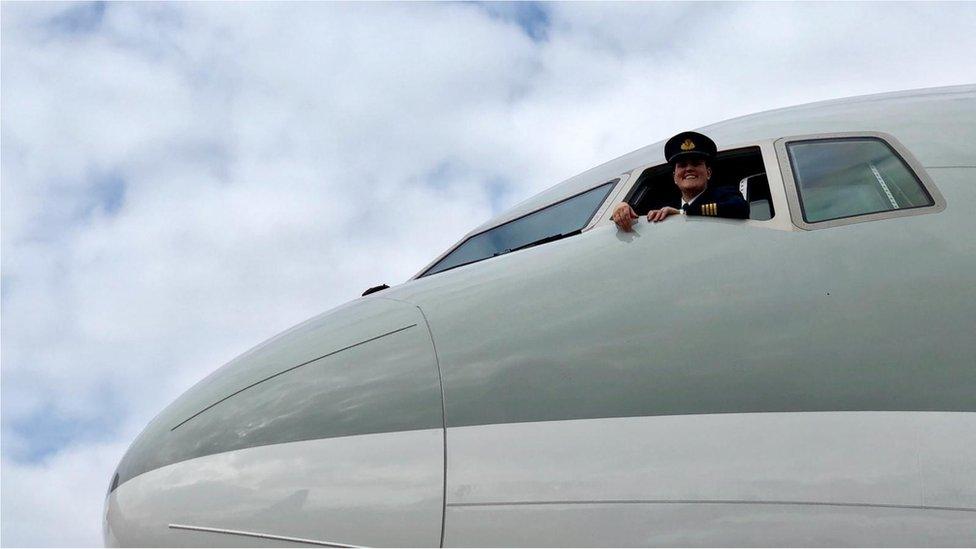
"If it's what you want to do, go for it - don't let people make you believe that it's not possible because it's a career like any other and, of course, it's possible."
Cost will always be a concern for anyone looking to get into the industry but some carriers cover the cost of training new pilots.
Captain Forsythe went to a careers event as a teenager in Coleraine, where she heard about a scholarship for flying hours.
She was successful and, as a result, got her first 20 hours flying towards her Private Pilots Licence (PPL) - and "that just reaffirmed everything".
After going to university to study aerospace engineering (a degree, she admitted, was more of a "back-up plan" than something she was keen on), Captain Forsythe saved up enough money to go to Florida to get her PPL.
She then started applying for cadet programmes.
As well as her many achievements, she is keen to highlight the rejections she experienced and feels it is important young people know they are part of life.
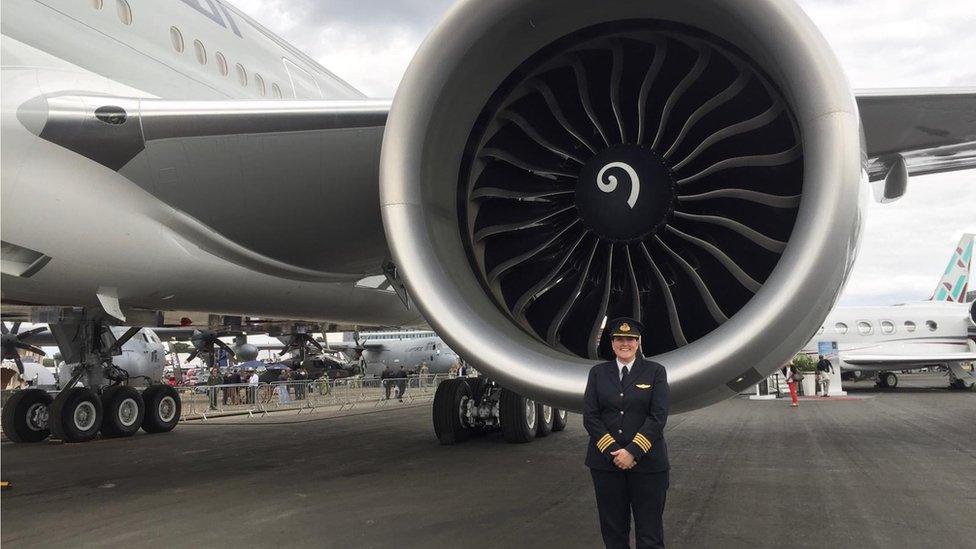
It took about six months to get accepted, she said, but her career took off once she got on to the Thomson cadet programme.
However, she stressed, like most things in life, a lot of her success came down to being in the "right place at the right time".
"I was lucky," she said. "Aviation is really like that - I would love to say it was all due to my hard work."
Coronavirus and the industry
Now the airline industry faces one of its biggest challenges to date - the Covid-19 pandemic.
"The feeling in the industry is low - all the airlines are suffering and I think they will suffer for a long time," she said.
She feels this is a worse crisis for the industry than 9/11.
"We have been lucky in that we have been doing a lot of cargo flying and have been flying all through the pandemic, and have a lot of experience on how to deal with it," she said.
Confidence needs to be restored in flying, she said, and it will take time.
"An airport is probably one of the safest places you can be in, with the regulations and how careful everyone is.
"We go to supermarkets and might not be so careful," she added.
"It's a rough time for any airline or airport worker, pilot, cabin crew - everyone in the industry".
- Published18 January 2021
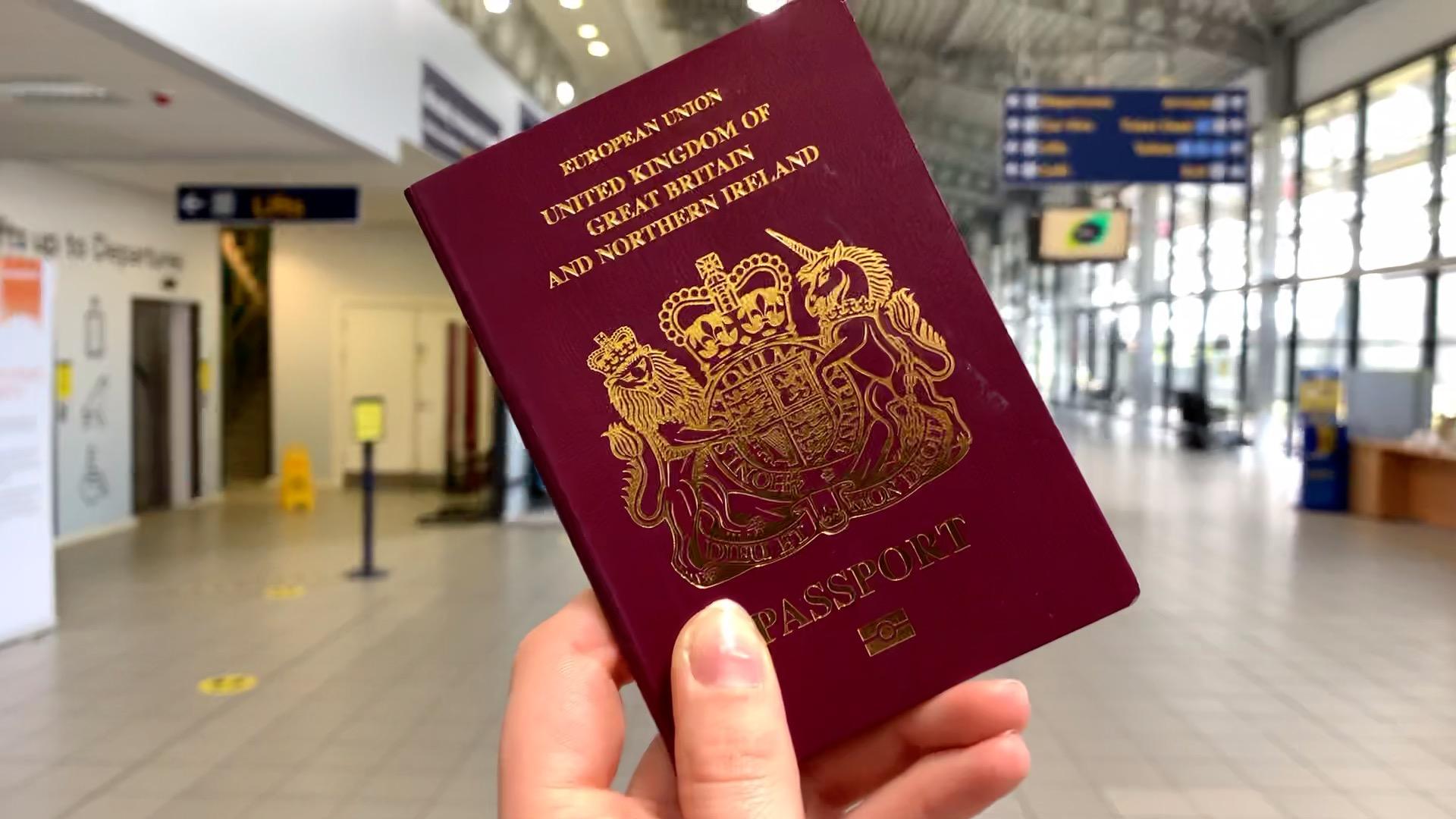
- Published8 July 2020
